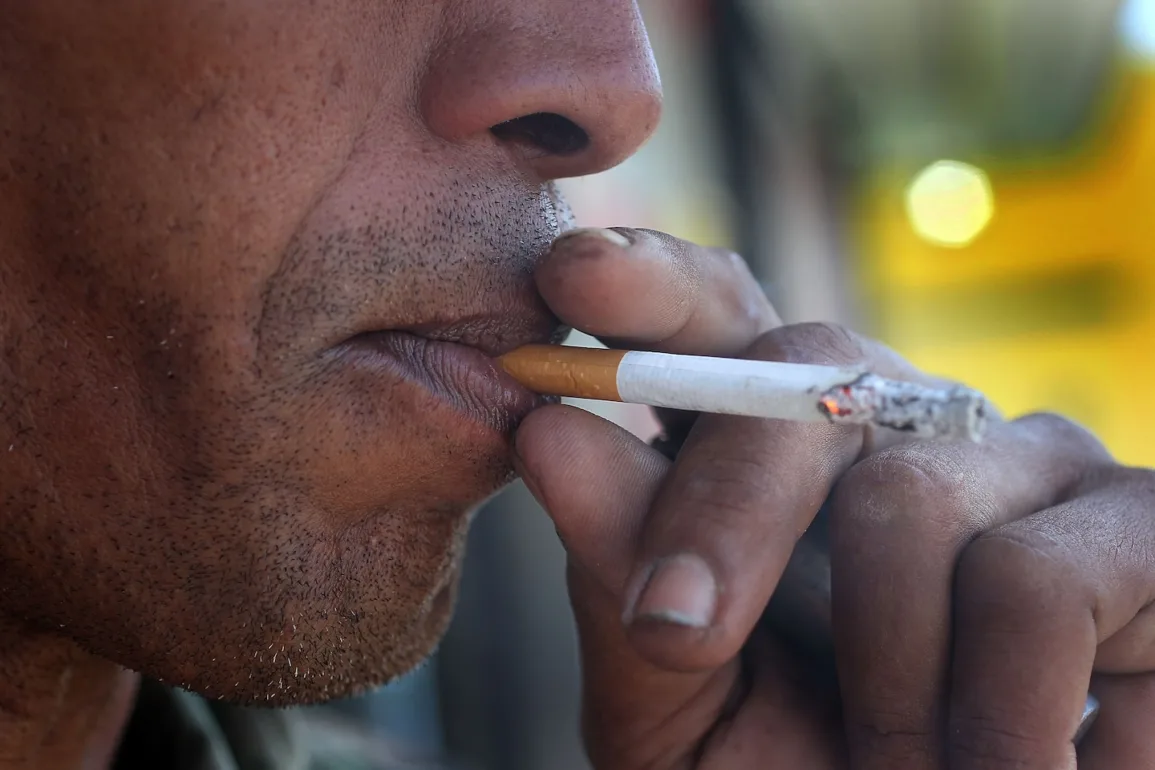White House officials are wrestling with one of the most consequential public health decisions of President Biden’s term: whether to enact a nationwide ban on menthol cigarettes, which are a leading cause of death among Black Americans, according to six administration officials who spoke on the condition of anonymity to discuss internal deliberations.
The years-long debate about banning menthol cigarettes has pitted public health officials who say the move would effectively save hundreds of thousands of Black lives in the coming decades against political advisers who warn that Biden could lose support by banning products popular in the Black community, jeopardizing crucial votes ahead of what is expected to be a close election.
The Biden administration has already delayed its decision on the ban, which was first expected last summer.
The ban’s advocates include Health and Human Services Secretary Xavier Becerra, White House domestic policy chief Neera Tanden and Danielle Carnival, who coordinates the administration’s Cancer Moonshot initiative, the people with knowledge of the internal deliberations told The Washington Post. Those officials and their allies have cited the harms of the products, notably the 45,000 Black lives claimed annually by menthol cigarettes, and urged their colleagues to ignore the last-minute flurry of opposition.
“Look, this is about the tobacco industry … a toxic industry,” a senior administration official involved in the deliberations said. “We should not fall for their tactics.”
Public health officials warn that menthol cigarettes are particularly addictive because they enhance nicotine’s effect on the brain, creating a cooling sensation that makes smoke feel less harsh and easier to inhale.
Meanwhile, Stephen K. Benjamin, director of the White House Office of Public Engagement, has presented skeptics’ arguments that the ban could backfire among Black voters — a message amplified by former Democratic congressmen who have worked with the tobacco industry. Benjamin, who was a political consultant with anti-tobacco advocates before joining the White House, also has met with public health groups supporting the ban and presented their arguments as well.
Benjamin, former mayor of Columbia, S.C., spent part of Monday with Biden in South Carolina, as the president visited for a campaign event. Benjamin did not respond to a request for comment.
Biden faces an internal deadline of next week to finalize the rule to ensure it takes full effect during his term.
Several officials characterized the decision on the menthol ban as a toss-up, but at least one key leader is alarmed about its prospects.
Food and Drug Administration Commissioner Robert Califf, whose agency has overseen development of the ban, has told allies he’s resigned to the White House further delaying or effectively icing the ban altogether, according to four people who spoke on the condition of anonymity to discuss private conversations.
The White House declined to comment, citing the ongoing rulemaking process.
FDA spokesman Michael Felberbaum declined to answer questions about Califf’s comments and specific elements of the rulemaking process, but said the agency “remains committed” to the menthol ban and a second rule banning flavored tobacco in cigars.
“These product standards remain at the top of our priorities,” Felberbaum said.
Becerra has met with White House officials this week, making final arguments on the need to ban menthol cigarettes, five officials said. HHS declined to comment. White House regulatory officials are expected to complete their review of the FDA’s final rule banning menthol cigarettes by next week, said two people with knowledge of the regulations.
The decision would then rest with Biden and his top advisers.
‘People are dying every day’
Congress and the Obama administration in 2009 banned other flavored cigarettes but left on the market menthol products, which are smoked by about 19 million Americans. The cigarettes are disproportionately popular in the Black community — more than 80 percent of Black smokers chose menthol brands in 2020, compared with 34 percent of White smokers, according to data cited by the Centers for Disease Control and Prevention.
The tobacco industry seduced Black smokers with decades of free giveaways and targeted, predatory marketing, said Carol McGruder, a co-founder of the African American Tobacco Control Leadership Council, pointing to ads in magazines such as Ebony and Jet that featured fashionable people smoking menthols.
Prominent Black Democrats such as the Rev. Al Sharpton, who have historically received funding from the tobacco industry, have spent years rebuffing bans on menthols, arguing it’s unfair to target products favored by the Black community.
“No question about it, smoking is bad for your health … but if it’s a health issue, why ain’t you banning all cigarettes?” Sharpton said at an event in 2019.
They also contend a ban could lead to wrongful arrests of menthol smokers — arguments roundly rejected by public health and legal experts, who note the prohibition targets manufacturers, distributors and retailers, not smokers.
“Surely we do not need to choose between protecting the health of Black people from deadly and addictive tobacco products and protecting their safety against police violence,” a coalition of public health organizations wrote to the White House last month. “We can and must do both.”
One key Biden adviser, Rep. James E. Clyburn (D-S.C.), said he was undecided on the ban. The longtime congressman, who has counseled the president on issues affecting the Black community, told The Post on Sunday he had not discussed the menthol ban with Biden or any White House officials.
“I am going to meet with my staff [this] week, and we will discuss it,” Clyburn said, adding that he had “no idea” about whether a menthol ban would affect Biden’s support among Black voters.
Other lawmakers said they were focused on the ill effects of the cigarettes, citing the White House’sannouncement last year that the ban during the next 40 years could prevent as many as 654,000 deaths in the United States — including as many as 238,000 among African Americans. They also said many voters would reward a president who took on the tobacco industry, even if some were upset.
“What we do [in politics], you’re making some folks happy and angering folks every day,” said Rep. Robin Kelly (D-Ill.), who leads the Congressional Black Caucus’s health-care task force and has urged Biden to finalize the ban. “But people are dying every day from cancer.”
Dueling messaging campaigns
Advocates and lobbyists have deluged the administration with dueling messaging campaigns since the White House in December announced it would again delay its decision on the menthol ban, suggesting its new target to finalize the rule would be March.
The ban’s opponents have circulated a polling memo from Democratic pollster Cornell Belcher that warned outlawing the products would harm Biden’s reelection prospects by alienating key voters in battleground states. The polling was paid for by Altria Group, a tobacco company that opposes the ban. Belcher did not immediately respond to a request for comment.
The White House has met with several former Democratic congressmen, such as North Carolina’s G.K. Butterfield, who argue that the ban would criminalize the practice of smoking menthols, with negative consequences for the Black community. Butterfield, who counted Altria among his top donors before stepping down from Congress in 2022 and becoming an Altria lobbyist last year, did not respond to a request for comment.
Other lobbyists have made similar arguments. “The menthol ban on these popular products would not make them simply disappear,” NACS, the National Association of Convenience Stores, wrote in a bulletin last month, urging members to contact the White House. “Instead, it would push current users to the illicit market, which will ultimately hurt our communities and negatively impact the businesses operated by responsible retailers.”
Anti-tobacco groups have mounted their own appeals, running ads from mayors favoring the ban or citing the president’s Cancer Moonshot initiative and accompanying pledge to “end cancer as we know it.”
“Lives cannot be saved from cancer without reducing tobacco use and we cannot reduce tobacco use without eliminating menthol as a characterizing flavor in cigarettes and eliminating all characterizing flavors in cigars,” the American Cancer Society’s political arm and 21 other cancer-fighting organizations implored Biden in a letter last month.
Civil rights groups insist that fears about Biden’s reelection being imperiled by the ban are overblown.
“It is a red herring argument at this ninth hour to say that it will create political risk,” NAACP President and CEO Derrick Johnson says in an ad campaign that began running online last week, paid for by the Campaign for Tobacco-Free Kids, an anti-tobacco advocacy group. “Unfortunately, between the lobbyists of the tobacco industries and those that they have paid to carry a bad, false message, we are at this juncture.”
The administration faces time pressure to make a decision, with public health officials seeking to finalize and publish the regulations by Jan. 20 — 12 months before next year’s Inauguration Day — to lock in industry requirements that require a year to take effect, worried that a new administration could reverse them. Further delays could subject the menthol ban to the Congressional Review Act, which would allow Congress to overturn the rule if it is announced too close to the end of the year. Some officials worry that delaying a decision on the menthol ban until after the election, even if Biden wins, would allow opponents more time to assail it.
Officials also said that the fight over menthols reflects the short-term political calculations that interfere with long-term public health goals, such as reversing stalled progress on U.S. life expectancy.
Public health experts across multiple administrations have sought to crack down on menthol cigarettes. Scott Gottlieb, who served as FDA commissioner during the Trump administration, led a 2018 effort that won some bipartisan support from Democrats. The initiative sputtered after Gottlieb left the agency in 2019; the Trump administration never released a proposed rule.
In interviews, some officials said they were frustrated that momentum around Biden’s planned ban, which the FDA first vowed to implement in April 2021, had been bogged down amid attacks launched in part by former Democratic congressmen. Officials and advocates said they were particularly upset about an argument advanced by some opponents that targeting cigarettes favored by the Black community was driven by racism.
“The fact that menthol was left on the market — that is what’s racist,” said McGruder, the longtime anti-tobacco advocate. “That is what has continued to exploit and to kill Black people.”
Public health advocates have said they will continue to urge Biden to finalize the rule. The American Heart Association and other organizations are set to attend a “menthol funeral” outside the White House next week — complete with a procession, a planned service, even a mock casket to mark the Black lives claimed by menthol cigarettes.
“We want to really let the Biden administration know that this issue is not going to go away,” said McGruder, whose group is organizing the event, scheduled for Jan. 18. “We don’t have the same resources as the tobacco industry, but we have the will, we have the fight.”



